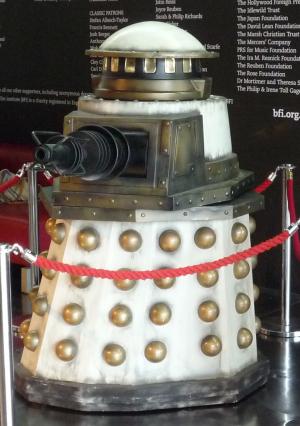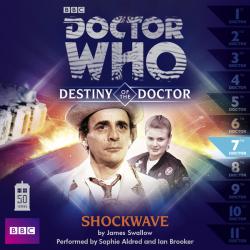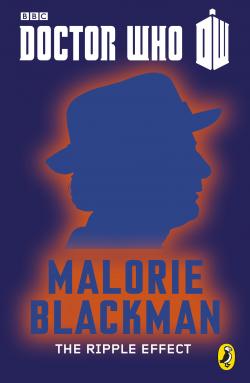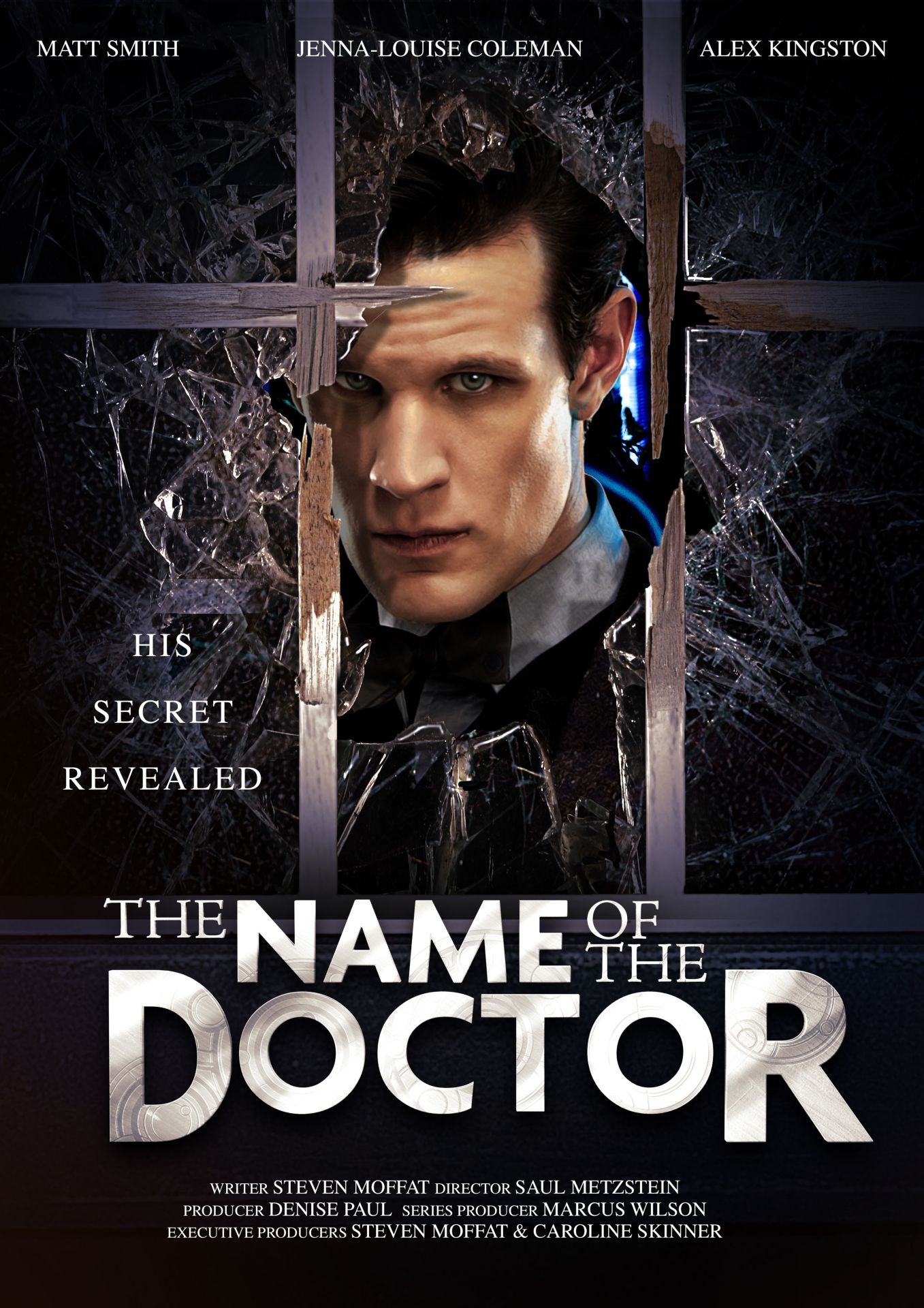Remembrance of the Daleks at the BFI
Sunday, 28 July 2013 - Reviewed by Anthony Weight
 I love Remembrance of the Daleks. It is a story that runs through my own personal fandom like the name of a town through a stick of seaside rock. It's one of the first stories I have very clear memories of watching on television, at the age of four. A couple of years later, the Target novelisation was, as far as I can recall, the first "proper" book I ever read.
I love Remembrance of the Daleks. It is a story that runs through my own personal fandom like the name of a town through a stick of seaside rock. It's one of the first stories I have very clear memories of watching on television, at the age of four. A couple of years later, the Target novelisation was, as far as I can recall, the first "proper" book I ever read. It may well be the Doctor Who story that I have seen more and know better than any other, but that didn't stop me taking the opportunity to see it again when good fortune gave me the chance to attend yesterday's screening at the British Film Institute, the latest in its Doctor Who 50th-anniversary season. And I'm certainly very glad that I did go along.
It's an excellent choice of story to represent the era of the Seventh Doctor, for many reasons. There are the high production values and excellent script, of course, along with the very strong cast. But it's also a story that combines a celebration and exploration of the history and mythology of Doctor Who with an open and accessible plot - you gain something if you have a good knowledge of the series, but you aren't excluded if you don't. And if you're anything like me, then the sense of it being a part of something larger, a teaser of so much more mythology to explore, only makes it all the more appealing.
It had actually been a very long time since I'd last been to any kind of Doctor Who-related event. I was quite heavily involved in the local fan group in the Brighton area when I was a teenager, and attended two one-day mini conventions run by the group. Since I moved away to university just over a decade ago, however, my fandom has tended to be pretty much online-only, becoming involved in debates and discussions on forums, but not actually going along to any kind of events or gatherings.
It was an interesting experience to see fans together en masse for the first time in such a long time. As Ben Aaronovitch noted from the stage in the panel session that followed the screening, "You've changed a lot in the past twenty-five years!" If you were a fan back in the 1990s, as I was, you could certainly see what he meant - many more female and younger fans than would have been the case in decades past, although I suspect that this would probably be no surprise to anybody who, unlike me, has attended an event since the series returned in 2005.
My only experience of any vaguely similar kind of screening to this was when the local arthouse cinema in the city where I live screened the film version of Quatermass and the Pit last year. That had been a slightly disappointing experience, because rather oddly the majority of the audience were clearly not on the side of the film - there had been much mocking laughter at some of the more archaic elements of the production and screenplay.
Pleasingly, there were no such problems here. The large audience - which included ever-present BFI Who attendee comedian Frank Skinner, ex-Adric actor Matthew Waterhouse, and Remembrance OB lighting man Ian Dow - were entirely behind the story, eager and excited to see it, whether for the first or the hundredth occasion. There was even an oddly charming moment when the Special Weapons Dalek earned a little ripple of applause after its first appearance blowing two Renegade Daleks into dust in episode four. Perhaps it was because the Abomination had made the effort to come along in person (in replica form, at least!), and was sitting in the BFI foyer, happily posing for photos . . .
 I'd never actually seen an episode of Doctor Who shown on a big screen before, and wasn't sure how well 4:3-framed 625-line video material would hold up under such scrutiny. In fact, it looked very good indeed, perfectly sharp and at such size I found myself noticing little details I hadn't spotted before, such as the graffiti figure on the school gate next to The Girl, as she watches the Doctor and Ace in episode one.
I'd never actually seen an episode of Doctor Who shown on a big screen before, and wasn't sure how well 4:3-framed 625-line video material would hold up under such scrutiny. In fact, it looked very good indeed, perfectly sharp and at such size I found myself noticing little details I hadn't spotted before, such as the graffiti figure on the school gate next to The Girl, as she watches the Doctor and Ace in episode one.It was curious how, even having seen the story so many times, I found myself getting quite excited as the lights went down and that gloriously menacing and enigmatic pre-titles sequence came up on the big screen, followed - of course - by the famous theme tune, which can still take me back to being a small child in an instant. I know others have their views on the McCoy era theme tune arrangement... and I don't care, frankly. For a generation of children my age, this was our Doctor Who, and the sound of it evokes an excitement and an air of mystery even all these years later.
There was one technical element of the screening that I did find slightly curious, in that it wasn't the broadcast version of the story that was used. This was only really detectable in the first scene in the cafe, where Mike sees Ace for the first time. Usually, this is accompanied on the soundtrack by a clearly very carefully-selected part of the song Do You Want to Know a Secret?, which fits in with the enigma of who Ace is as Mike watches her. Even on the original DVD release, when the rights to The Beatles' version were unavailable, the Billy J Kramer version of the same song was used. Here it was a completely different song, which is a shame - it may seem such a small thing, but that little scene loses something with its absence.
As well as not having been to any kind of Doctor Who event for such a long time, this was also my first visit to the BFI - and I doubt it will be my last. To sound boringly pedestrian, I was pleased (and relieved!) at how well-signposted and easy-to-find the place was, and the whole organisation of the event seemed to be very smooth. The tone of the day was right as well - there was a respect for the series, but not a po-faced reverence of some serious film seminar. It was supposed to be a fun and entertaining event - a celebration, of course - and it certainly managed that.
Epitomising the sense of fun was the introduction of a mystery guest for a short pre-screening interview via a showing of the K-9 and Company titles, which received much laughter and, touchingly, applause for the late Elisabeth Sladen. John Leeson had been unable to attend the Fourth Doctor screening earlier in the year, but he was here as an extra guest on the basis that he provided the voice of the Battle Computer in this story, and it was certainly nice to see him.
 There were also interesting little chats with effects designer Mike Tucker and special sound wizard Dick Mills between episodes, but the main focus of discussion was the panel afterwards, with Aaronovitch, Sophie Aldred, and Sylvester McCoy, which was well-handled by the BFI season's co-curator Justin Johnson. All three Who alumni gave the impression of being very proud of their work on the series, but there was also the slightly bittersweet feeling that they had been cut down in their prime - they could have done so much more had they been given the time and the opportunity. Time at least has justified the faith they had in the power of the show, and Remembrance does feel like a pointer to what would come in the future. With its fast pace, strong characterisation, and high-quality effects, it does feel almost like a new-series story before there was ever a new series.
There were also interesting little chats with effects designer Mike Tucker and special sound wizard Dick Mills between episodes, but the main focus of discussion was the panel afterwards, with Aaronovitch, Sophie Aldred, and Sylvester McCoy, which was well-handled by the BFI season's co-curator Justin Johnson. All three Who alumni gave the impression of being very proud of their work on the series, but there was also the slightly bittersweet feeling that they had been cut down in their prime - they could have done so much more had they been given the time and the opportunity. Time at least has justified the faith they had in the power of the show, and Remembrance does feel like a pointer to what would come in the future. With its fast pace, strong characterisation, and high-quality effects, it does feel almost like a new-series story before there was ever a new series.Perhaps my personal highlight of the day, however, came after the main event itself was over. Aaronovitch was in the foyer signing books, and I was able to get him to sign for me the very Target book I read as a six-year-old, some 23 years ago. It's battered and creased and dog-eared, but it's one of the few books I've kept with me wherever I've lived all these years later, and it can't be very often you get to meet and thank the person who wrote such an important book in your life.
After I'd had the book signed and was walking away from the queue, I was stopped by an elderly Indian couple, who were curious as to who everyone was queueing up to see, and what event had just been taking place. I explained that it had been an anniversary screening for a long-running series called Doctor Who, and that the man at the table signing books was one of the writers of the series.
"Ah, Doctor Who!" the gentleman of the couple replied eagerly, recognition flashing across his face. "Yes, that has been going for a very long time... I remember it when I visited this country in 1967..."
Doctor Who means so many different things to so many different people, whether it's a fleeting experience of it on a visit to a foreign country, or something you have loved all your life, which has become a part of who you are. I am not in the least surprised that the BFI screenings have proved to be so popular this year, as on the basis of the Remembrance screening they recognise and celebrate the fact that Doctor Who is, as Andrew Cartmel once noted, "for everyone." Fan cliques or eager children, all were represented, and I think all came away having very much enjoyed their afternoon.
If you get the chance to attend any of the remaining screenings, I urge you to take it. It's a fine way to join in with the anniversary celebrations, and especially enjoyable if they happen to be showing one of your very favourite stories.












